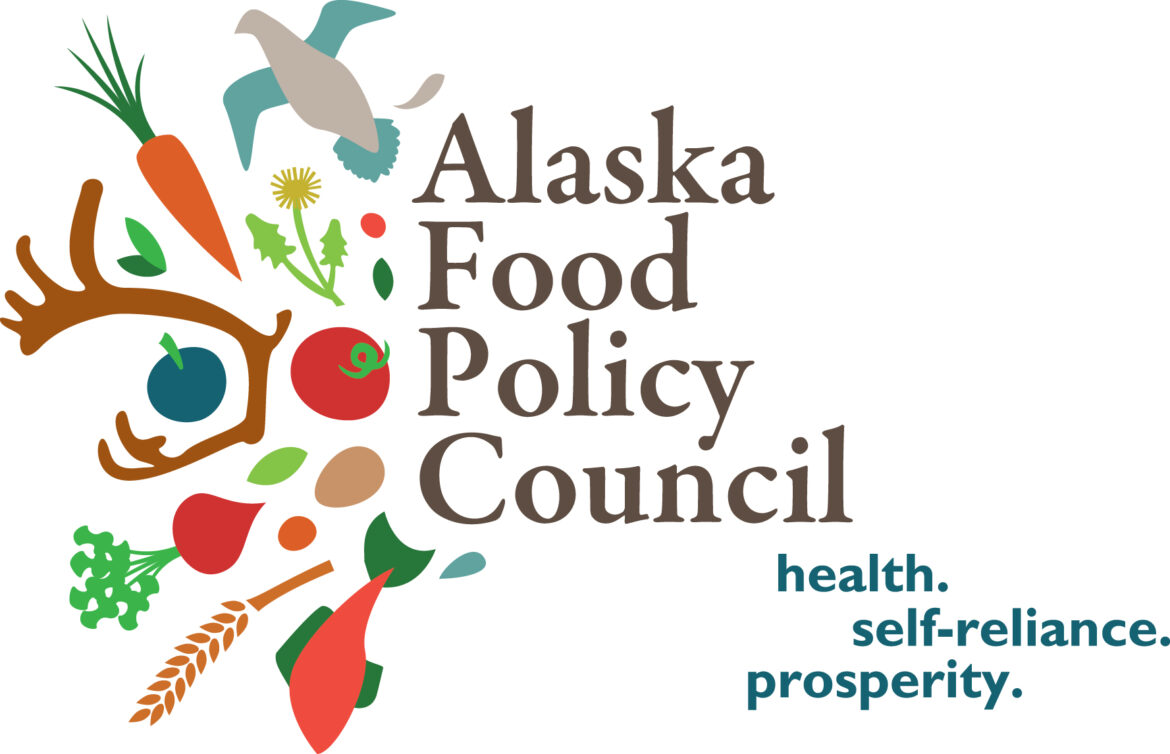Part of the Food Policy Councils in Action spotlight series
Name: Alaska Food Policy Council
Year it started: 2010
Mission: To create a healthier, more secure, and more self-reliant Alaska by improving the food system.
Members/Structure: Membership in the Alaska Food Policy Council (AFPC) is open to anyone interested in improving Alaska’s food system. Members include restaurateurs, farmers, school teachers, physicians, architects, bankers, nutritionists, and agricultural agency administrators. The council is led by its executive director, Robbi Mixon, and a board of directors whose members serve three-year terms.
What they do: AFPC works with communities and builds partnerships to improve food systems through nonpartisan research and policy recommendations. The role of the council is to connect, advocate, and inform. As stated on their website, this means:
- “Connect: Engage with Alaskans to get input to strengthen our food system, and to connect them with each other to learn and collaborate.
- Advocate: Develop recommendations and share them with policy makers at the local, state, federal, and tribal level.
- Inform: Share information, resources, opportunities and risks with all food stakeholders (everyone who eats!)”
AFPC’s work includes:
- Participating in Food Security Week events in Juneau
- Developing and distributing a survey for political candidates and publishing results
- Creating a Food Security Action Plan for the State of Alaska
- Hosting the Alaska Food and Farm Festival
- Recognizing individuals and organizations making a significant impact on Alaska’s food systems with the Alaska Food Heroes Award
How they do it: There are six committees and working groups within the council that help AFPC reach its goals.
- The Advocacy Committee works with policymakers and the public to increase awareness of issues relating to the creation of a sustainable food system in the state, and provides recommendations to the Board of Directors regarding priorities for AFPC each year.
- The Communications Committee develops newsletters and social media posts, manages AFPC’s web page, distributes press releases, promotes special events, and produces AFPC’s annual report.
- The Alaska Food Festival Conference Planning Committee helps to plan the semi-annual conference during which AFPC connects with others and advocates for a sustainable Alaska food system.
- The Indigenous Foods Working Group was introduced in 2020 and focuses on enhancing food security and food sovereignty throughout Alaska, particularly in the Alaska Native and American Indian communities, and advocating for the importance of Indigenous foods.
- The Food Waste Working Group has three overarching goals: 1) to gather information about food waste and related policies, 2) to find ways for people to reduce food waste, and 3) to encourage local food waste reduction. They use both digital and in-person outreach to maintain a living archive of food waste activity across the state and celebrate organizations that are working on food waste solutions.
- The Food Hubs Working Group launched in 2023 under a USDA Local Food Promotion Program (LFPP) planning grant project, “Alaska Food System Research and Knowledge Sharing: Growing Connections for Local Food.” The working group will conduct a thorough assessment of food hub best practices to create an Alaskan Food Hub Recommendations Report and an Alaska Food Hub Operations and Safety Manual.
Latest project/campaign: The LFPP planning grant, described above, is AFPC’s newest project. AFPC will “facilitate food system research and educational opportunities, to increase viable and sustainable local food production and distribution through a network for Alaskan Food Hubs.” The objectives of the project are:
- To enhance and improve food hub operations statewide by sharing best practices and exploring solutions to food hub challenges through monthly meetings and professional development opportunities.
- To create a recommendations report and safety manual to improve food safety, collaboration, operations, sales, and the movement of local food throughout Alaska.
- To lead sessions at the Fall 2023 Alaska Food Festival & Conference that focus on food hub operations, food safety, local food production, and marketing.
Other recent or current projects include:
- Co-authoring and finalizing the Food Security and Independence Task Force Report
- Partnering with the Alaska Farm Bureau to launch the legislative Food Strategy Task Force via House Bill 298
- Planning the Alaska Food Corps, an AmeriCorps food systems volunteer program
- Planning the next Alaska Food Festival and Conference
- Applying for a USDA Regional Food System Partnership implementation grant to build on a recently completed planning grant
Interesting fact about how they are working to positively affect the food system: Alaska is 2.5 times bigger than Texas but has only about 730,000 residents (as compared to 30.5 million in Texas), with 86 percent of communities accessible only by boat or plane. The size of the state and the distribution of the population create logistical challenges to improving food systems and increasing food security. AFPC represents the entire state and is approaching these challenges from every angle in order to create a more sustainable food system.
FACT SHEET:
Website: https://www.akfoodpolicycouncil.org/
Number of full-time staff: 1
Areas served: Alaska
Executive Director: Robbi Mixon
Contact Information:
Email: info@alaskafoodpolicycouncil.org
Phone: (907) 756-3930
Social Media:
Facebook: Alaska Food Policy Council (@akfoodpolicy)
Instagram: @akfoodpolicycouncil
Twitter: @AK_FoodPolicy
Learn More:
- 2022 Annual Report (Alaska Food Policy Council)
- AFPC Launches Food Hub Working Group, with USDA Funding (Alaska Food Policy Council)
- AFPC Receives Grant to Improve Alaska Food Security (Alaska Food Policy Council)
- Alaska Food Policy Council (Alaska Department of Health)
- Alaska Food Policy Council Releases Inaugural Annual Report (Alaska Food Policy Council)
- Alaska Food Security and Independence Task Force 2023 Report (Alaska Food Systems)
- Food Security Action Plan (Alaska Food Policy Council)
- Resolution 2011 – 05 A Resolution of the Southwest Alaska Municipal Conference Recognizing and Supporting the Formation of an Alaska Food Policy Council (Southwest Alaska Municipal Conference)
- Senate Approves Resolution Creating Food Working Group (Alaska Food Policy Council)


